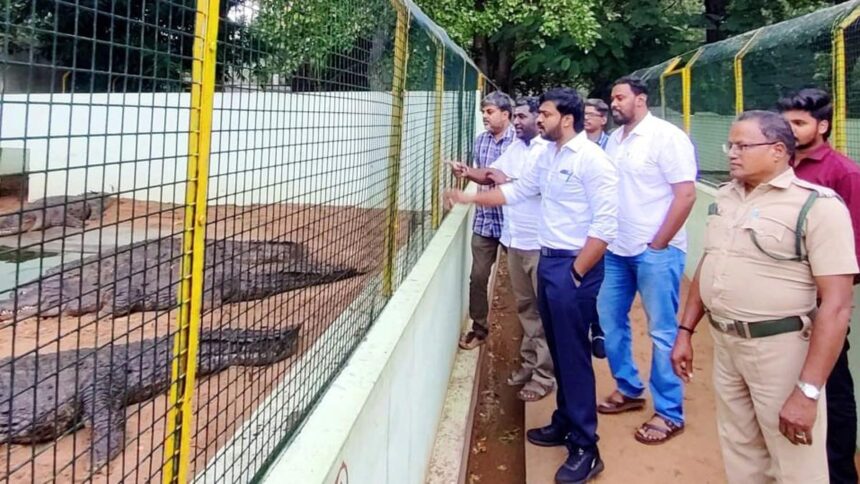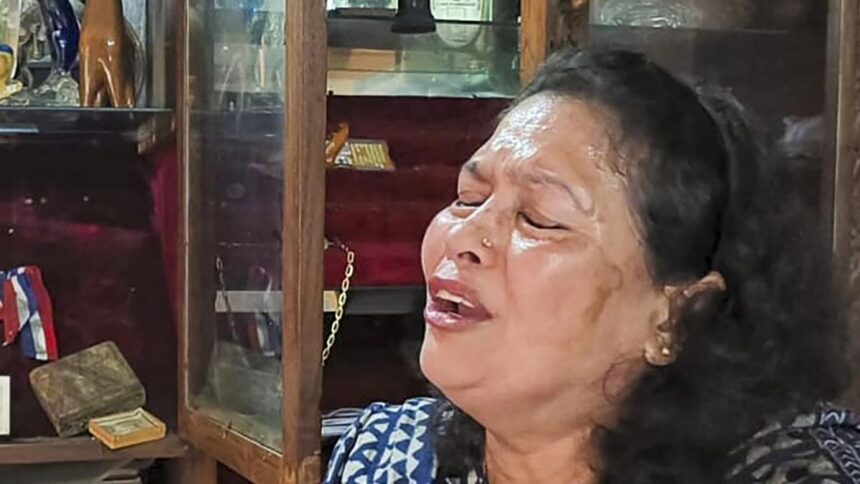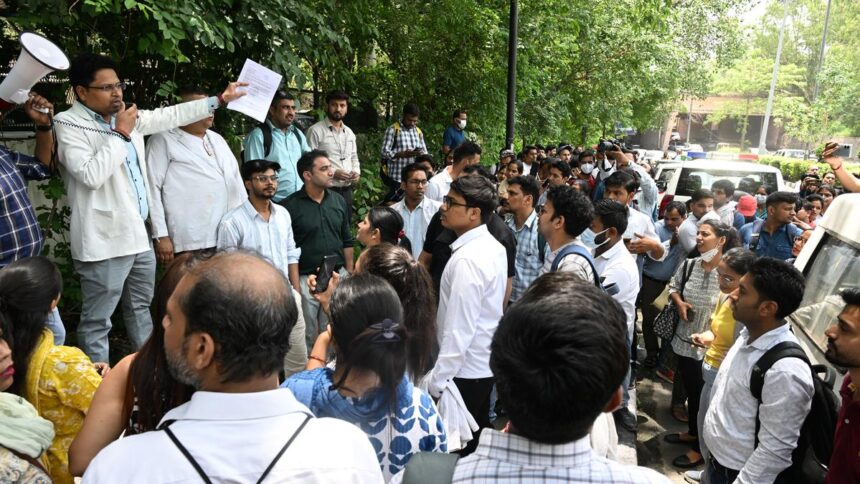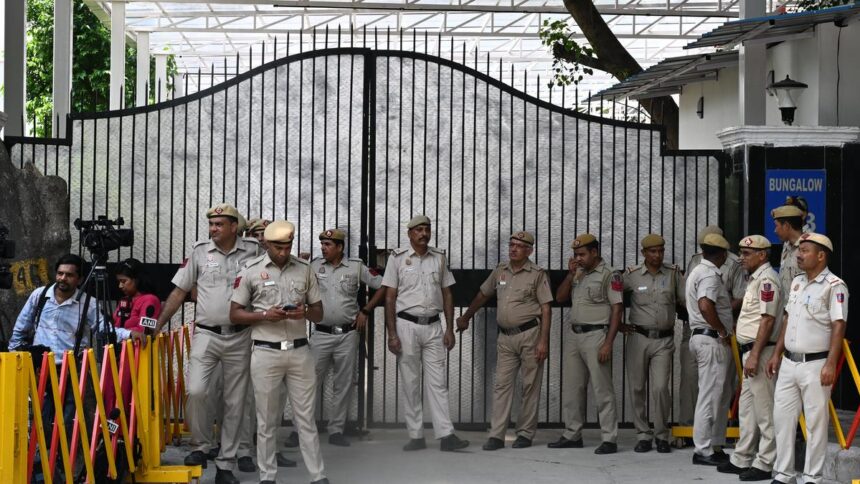
Dignitaries at the launch of a report by women’s rights organisation Aweksha on domestic violence, in Bengaluru.
| Photo Credit: special arrangement
A report by women’s rights organisation Aweksha has found that spousal violence doubled in Karnataka between 2015-16 and 2019-21, and conviction rates in related cases are abysmally low in Bengaluru.
“Despite having a high charge sheeting rate, and low rate of false and mistake of fact/law/civil dispute cases, the conviction rates stood at 2.38% (for IPC 306), 6.45% (for IPC 304B), 1.08% (for IPC 498A), and 0.73% for Dowry Prohibition Act in Bengaluru which is abysmally low when compared to the conviction rate at the all-India level,” reads the report titled ‘Law and its Limitations: An empirical study on domestic violence and marital cruelty’.
IPC 306 dealt with the offence of abetment of suicide, IPC 304B with dowry death, and IPC 498A with cruelty to a woman by her husband or his relatives, before being replaced by the Bharatiya Nyaya Sanhita in 2024.
High bail rate in DV-related cases
The study, written by Bindu Doddahatti and Pragya Solanki, also sheds light on the high percentage of bail granted to persons arrested under domestic violence-related sections.
“The percentage of arrested persons getting bail is 97.8%, 98.18%, 0.63%, and 98.07% for cases filed under Sections 498A, 306, 304B, and the Dowry Prohibition Act, respectively, in Bengaluru,” it noted.
According to the report, data collected from the Halasuru police sub-division showed that anticipatory bail was granted to at least one of the accused in 72.5% of cases filed under domestic violence related sections.
Diminishing legal aid
In Bengaluru, housewives constituted 51.36% of female suicide victims from 2017 to 2022, notes the study. It also shows that a majority of the persons arrested in the city under domestic violence-related sections during the study period were men in the age group of 30-45.
Survivors of domestic violence, however, are opting for civil law more than criminal law, it finds.
“We are told that women are misusing the law, a claim that is not only exaggerated, but also takes away from the fact that far more women are dying in silence than speaking up,” said Donna Fernandes, founder of Aweksha, during the launch of the report.
Despite the alarming numbers, the number of legal service clinics and beneficiaries of legal services have declined over the years. “Mediation centres have a significant number of pending cases (30.82% in 2022). Moreover, only 20.2% of all cases that were disposed of at the mediation centres in Karnataka from 2017 to 2022 were settled,” it notes.
The report also highlights that there is no publicly available data on the appointment of dowry prohibition officers in Karnataka.
Recommendations
Among other recommendations, the report suggests that the Karnataka State Legal Services Authority should maintain detailed data on the services being provided by legal services authorities and outcome of the cases in which advice or aid was taken from LSCs.
“The functioning of LSCs in rural vis-a-vis urban areas is also missing. Moreover, data on the socio-economic locations of beneficiaries, such as rural-urban divide, gender (including data on LGBTQIA+ individuals), caste, class, religion and education levels would be useful for undertaking an inter-sectional analysis in future studies on gender-based violence and the role of KSLSA,” it notes.
Published – July 19, 2025 10:35 pm IST





















